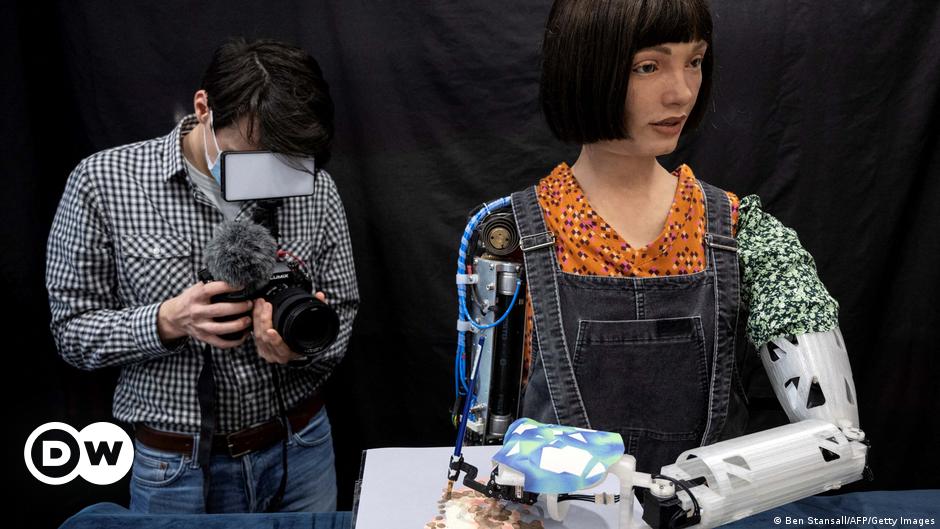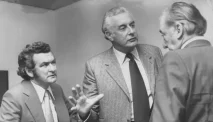Diksia.com - On Thursday (July 6th) and Friday (July 7th) the UN is hosting an “AI for Good Global Summit” in Geneva, which will be attended by around 3,000 experts from technology companies such as Microsoft and Amazon, as well as universities and international organizations.
At the World Summit, a framework will be discussed and designed to harness the potential of artificial intelligence (AI).
“Technology is advancing rapidly,” said Doreen Bogdan-Martin, Secretary-General of the International Telecommunication Union (ITU), representative of the United Nations Information and Communications Technology Body, which organized the conference.
Bogdan-Martin said the World Summit is “a real opportunity for the world’s leading voices on AI to come together on a global stage and discuss governance issues.”
“Doing nothing is not an option. Humanity depends on AI. Therefore, we must engage and work to ensure a more responsible future with AI,” he added.
Bogdan-Martin added that the meeting will also outline possible frameworks and boundaries to support safer deployment of AI technology.
Invited guests include Werner Vogels, Amazon’s Chief Technology Officer, and Lila Ibrahim, Head of Operations at Google DeepMind.
There is also the former captain of the Spanish team, Iker Casillas, who suffered a heart attack in 2019, where he is now actively promoting the use of AI for heart attack prevention.
Dozens of robots will also be on display at the World Summit, including several humanoids such as Ai-Da, the world’s most advanced humanoid ultra-realistic robot artist Ameca; humanoid rock singer Desdemona; to Grace’s state-of-the-art healthcare robot.
Founded in 1865, the ITU, the oldest organization under the auspices of the United Nations and based in Geneva, felt the need to make its experience in implementing the governance of AI operators available.
This world summit also aims to identify ways in which AI can be used to advance the United Nations Sustainable Development Goals, which are still lagging behind on issues such as health, climate, poverty, hunger and clean water.
Bogdan-Martin went on to say that AI must not exacerbate social inequality or create prejudice related to race, gender, politics, culture, religion or even luxury.
“This meeting can help chart a course for AI that will benefit humanity,” said UN Secretary-General Antonio Guterres.
Although proponents of AI technology laud its significant impact on society, including in employment, healthcare and creative pursuits, some are actually concerned about AI’s potential to undermine democratic systems.
“We are in a perfect storm, suddenly we have new technology that is so powerful. I don’t think technology is that smart where it’s so ubiquitous and so powerful in our lives, but we’re not really ready yet.” said an AI entrepreneur, Gary Marcus.
According to Marcus, “We are at a critical moment in history: if we get it right and build the global governance we need, or if we make a mistake and don’t, we’ll end up in a bad place for some of the companies.” who control the destiny of many people without giving it enough thought.”
Last month, EU lawmakers called on the union to pass one of the world’s first laws regulating AI technology systems like OpenAI’s ChatGPT chatbot. In addition, there are also efforts in the USA to regulate AI technology.
ChatGPT has become a worldwide sensation since the technology was launched late last year due to its ability to generate content such as human reactions like writing essays, poetry or conversations from simple commands.
ChatGPT has sparked a surge in generative AI content, prompting lawmakers around the world to figure out how to regulate such bots.
Juan Lavista Ferres, chief data scientist at the Microsoft AI For Good Lab, gave an example of how AI can be used “to make our world a better place.”
One of them, Ferres mentioned, is AI technology, which can diagnose diabetes, the leading cause of blindness, in more than 400 million people.
Ferres says: “It is physically impossible to diagnose every patient. But we and others have developed a model of AI technology that can now diagnose conditions with an accuracy that rivals the best ophthalmologists. This is even possible via a smartphone. Here AI is not just a solution, it is the only solution,” concludes Ferres.






